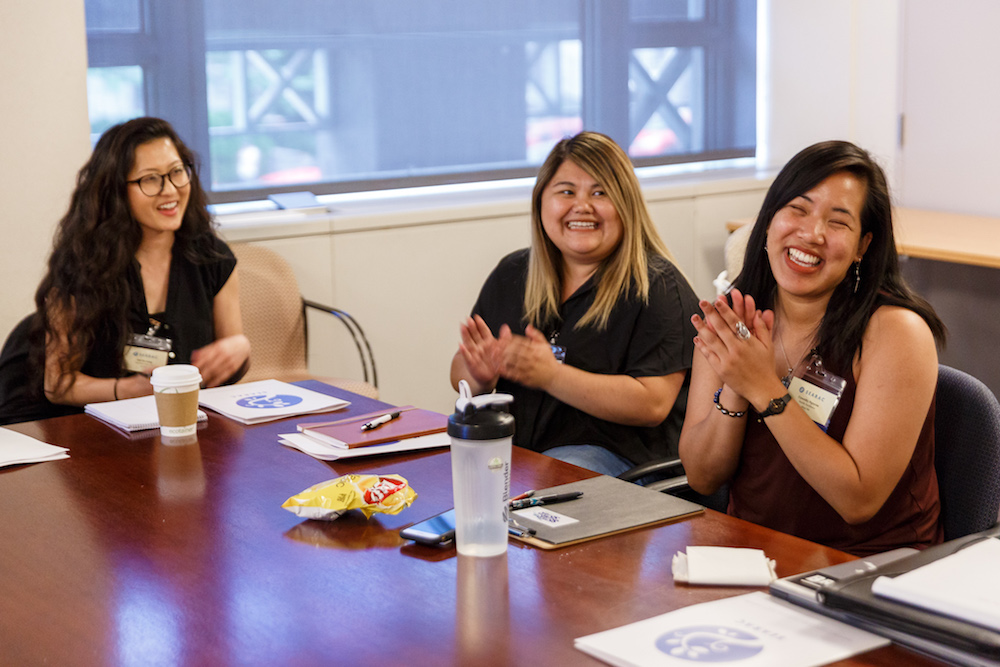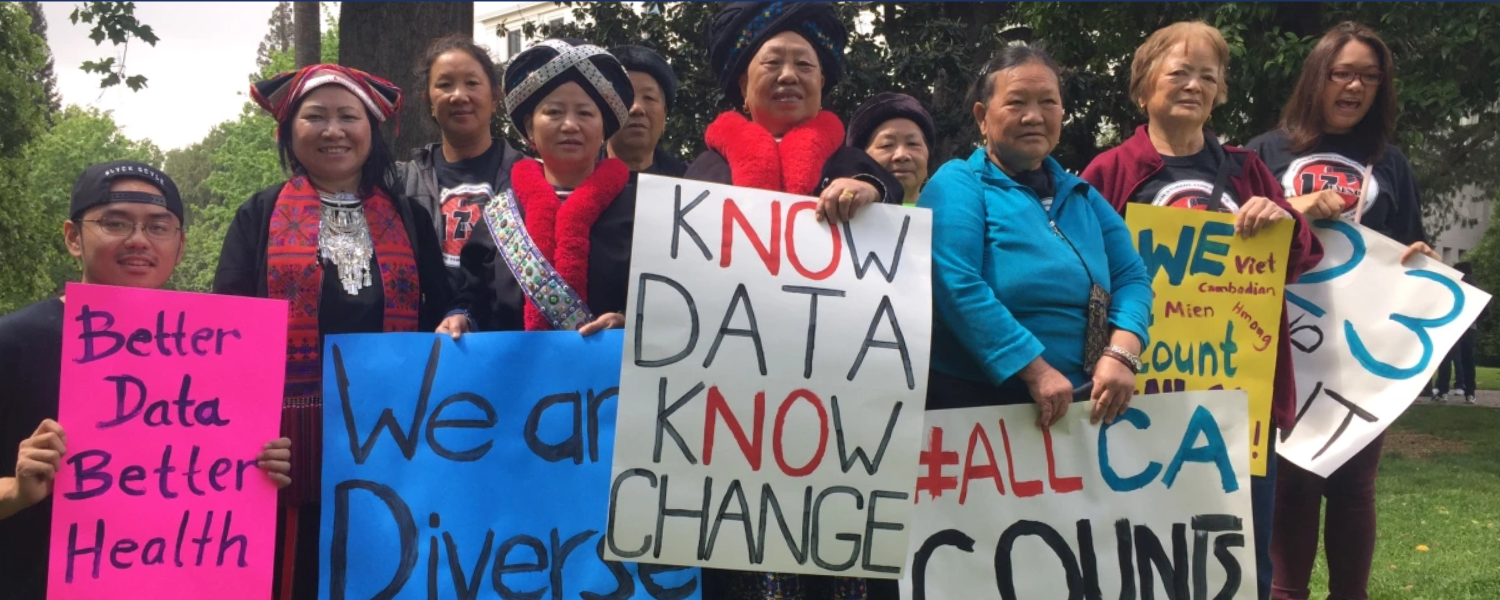July 3, 2019 IN: California, Health, Take Action
Californians, share your mental health story for Minority Mental Health Awareness Month

In May, SEARAC launched our Mental Health Story Collection to learn about the various ways Southeast Asian Americans have accessed, or not accessed, mental health services. The story collection campaign seeks to identify gaps in mental health services and develop community-defined policy solutions; however, more importantly, the story collection campaign provides a space for these mental health stories to be told. Many individuals remain untreated and experience their mental health conditions in silence because stigma continues to be a barrier to receiving care.
July is Minority Mental Health Awareness Month, and today and every day, SEARAC believes in the power of sharing our stories to heal and demand social change. In telling our stories, we shed light on how our individual experiences are connected to a larger institutional barrier. In order to demand for more culturally and linguistically appropriate mental health for the SEAA community, we must demonstrate the gaps in our system, how they affect us on a personal level, and how they contribute to the inequity our community experiences.
SEARAC is still accepting responses to our Mental Health Story Collection from now until this Friday, July 5. Submit your mental health story today!
SEARAC is humbled and honored to have read the stories many Southeast Asian Americans and SEAA-serving organizations have shared with us so far about their mental health journeys:
“I first became culturally aware of the mental health stigma surrounding Asian cultures during my sophomore year of high school when I had my first episode of major depression. I was 14 years old when I understood the concept of rape and realized that I was raped when I was 8 or 9 years old. Remembering the traumatic experience as a child led to my withdrawals in activities that were once an interest, such as spending time with family and friends, participating in extracurricular activities, volunteering for the community, playing tennis with my mother, going on hikes, bike rides, and traveling. I ended up replacing my time with cutting, overeating, locking myself in my room with the blinds closed, putting minimal effort into my school work, and completely shutting off from the world.
It has been a little over a year since I developed my mental health team of a psychologist, psychiatrist, primary care physician and therapist, who have helped me to be a little stable, realize the impact my behaviors have on others, develop healthy coping mechanisms and allow myself to be happy. I believe if I did not have my mental health care team my relationships will continue to be unstable. I would still act hasty without considering the consequences at times and feel a sense of worthlessness and hopelessness.”
-Cambodian/Khmer, 18-24 years old, female, straight
“With the recommendation from a friend, I went to see a new counselor who was a Southeast Asian woman. After my first session with her, I immediately realized the importance of having not only culturally competent health professionals, but [also] health professionals who know how to empathize because of our similar upbringings. Trust [was easier to] establish, and it was this trust that I relied on during my sessions with this counselor. It’s definitely a lot easier to skip the cultural lessons to my counselor and move onto talking about what I’m really there for, and how it ties to cultural understandings. I am eternally grateful for her and the years she dedicated to me throughout my college career.”
-Hmong, 18-24 years old, female, straight
“Vietnamese language interpreters could not (or were ‘uncomfortable’) translating gender/sexuality terminology. The few times my family member/s were allowed to be in the room were not helpful for these reasons. Not having access to culturally appropriate MH services has almost permanently created distance between myself and some of my family members. Considering the importance of community and community resources for first-generation immigrants, this has impacted my survivability, connections to my own SEA identity/hx/culture, and ability to navigate my mental health experience.”
-Vietnamese, 18-24 years old, transgender, non-binary/gender queer, queer
“Admitting you have mental issues is a sign of weakness in my family [and] made me unable to seek help when I had suicidal thoughts during college.“
-Cambodian/Khmer, 25-34 years old, male, bisexual
“I wished that the services I received had a culturally appropriate aspect. I shared about the trauma and hardships my parents and grandparents faced and how that has an impact on me. They have their issues, and they react harshly and sometimes violently towards my siblings and I. However, the therapist ignored that aspect and almost made me feel like the trauma my parents have doesn’t affect me.”
-Hmong, 25-34 years old, female, straight
“I never really knew about culturally appropriate mental health services until I was incarcerated. Growing up I was just surviving and never thought about trauma, mental health issues/struggles/services, and/or culturally relevant issue(s). I just knew I was discriminated against because I was different and my cultural norms were not socially accepted or recognized in the communities I was living in. My family often reminded me to keep it to myself and be invisible – ‘Don’t stand out.'”
-Vietnamese/Chinese, 35-44 years old, male, straight
“I encountered two additional white counselors that I felt weren’t as helpful as her – was it due to their race or the fact they were higher up/more experienced than her – I’m not sure completely. I remember feeling judged and attacked by them and not willing to be fully vulnerable around them. I feared they wouldn’t understand. One of them made me cry, and the appointment lasted less than 10 minutes. I remember feeling wrong on my journey to mental healing and confused. How can I be wrong in trying to heal my mind, and how could a mental health professional make me feel like that? I had such a bad experience that I couldn’t go back for my one-on-one sessions for three weeks in fear of running into her again. I felt like that one encounter made me regress. The other one wasn’t willing to help me until I was 100% ready to commit to mental healing; he recommended a two-day inpatient program. I didn’t feel like I needed something so extreme as I was feeling generally in a better space, but he felt/experienced different. These two people made me feel judged and instead of acknowledging my want to be better, they made me feel like I wasn’t doing enough. They made me feel the way my parents made me feel.”
-Hmong, 25-34 years old, female, straight
“When I did not feel understood and heard by my provider, background differences made it hard on me to express each problem. By the time that I explained where my perspective comes from, I did not feel like having energy to talk about the problems anymore. It feels [lonely], and the provider is not culturally appropriate in my experience.”
– Cambodian/Khmer, +55 years old, female, straight
What is your mental health journey? Help SEARAC improve cultural and linguistic competence in mental health and fight the stigma by sharing your story today .
TAKE ACTION: Support our sponsored mental health CA bill by telling us your mental health story
Take five minutes to fill out SEARAC’s Mental Health Story Collection – Californiato help identify gaps in mental health services and develop community-defined policy solutions in order to improve mental health services for the Southeast Asian American community.
Your story will also help advocate to California state legislators why they should support AB 512: Cultural Competence in Mental Health and is a part of a bigger statewide #Care4MyCulture campaign to improve cultural competence in California’s mental health delivery system.




